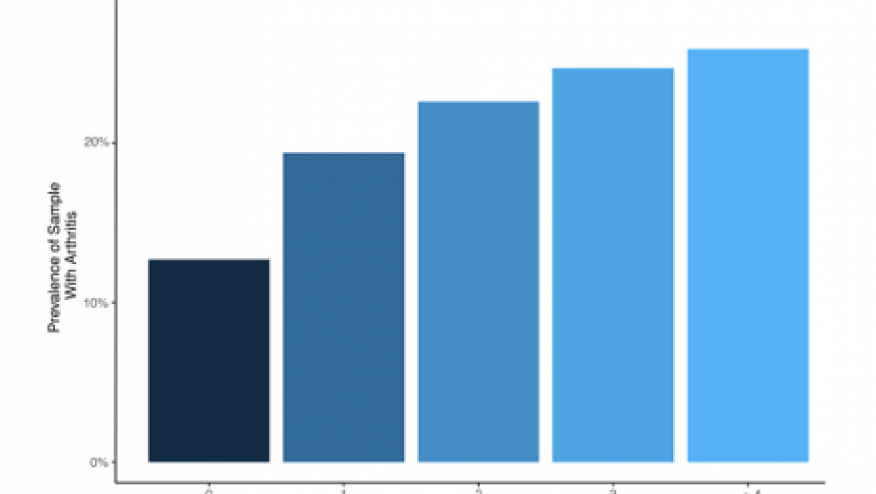Increased Odds of Arthritis with Social Risk Factors Save

MMWR has published the results of the 2017 Behavioral Risk Factor Surveillance System showing that increases in the number of social risk factors independently increases the odds of arthritis and its burden in the USA.
While there are several risk factors that have been associated with arthritis prevalence and costs, this study was unique in assessing the contribution of multiple social risks of the prevalence and burden of arthritis by using a representative sample of adults in 17 US states, specifically using the BRFSS population based survey system.
Social risk factors included food insecurity, housing insecurity, financial insecurity, unsafe neighborhoods, and health care access hardship.
From the total cohort of 136,432 adults respondents they found a gradient in the prevalence and burden of arthritis. Compared with those reporting 0 social risk factors, respondents reporting 4 or more social risk factors had:
- Double the risk of arthritis (adjusted OR 1.92; 95% CI, 1.57–2.36)
- Limitation of usual activities (AOR, 2.97; 95% CI, 2.20–4.02)
- Limited work (AOR, 2.72; 95% CI, 2.06–3.60)
- Limited social activities (AOR, 3.10; 95% CI, 2.26–4.26)
- Severe joint pain (AOR, 1.86; 95% CI, 1.44–2.41).
Moreover, with increasing social risk factors, other health disorders also increased, including depression, myocardial infarctions, CVA, asthma, COPD, and multimorbidity.
Social risk factors are potentially modifiable and should be considered in US efforts to improve health outcomes.











If you are a health practitioner, you may Login/Register to comment.
Due to the nature of these comment forums, only health practitioners are allowed to comment at this time.